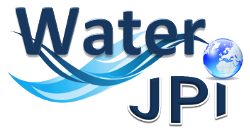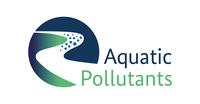AquaticPollutants RoadShow: Amplifying Research Development and Innovation Amongst Partner Countries
The South African Water Research Commission convened a virtual roadshow with partners in the ERA-NET CoFund AquaticPollutants consortium during Stockholm World Water Week held on the 28th August 2024. The roadshow addressed how research among African partners is solving challenges on the continent related to the pollution of rivers, estuaries and coastal ecosystems by contaminants of emerging concern (CECs). CECs include chemicals, antibiotics as well as well as microorganisms, which originate from consumer waste products, agriculture, animal husbandry farms, industry, and maritime activities. International project cooperation is important to strengthen and build resilience in the global water research, development and innovation sector, considering the impacts of climate change, urbanization and rapid population growth, and risks to energy and food security.
Two core themes were central to the session: assessment and surveillance of emerging pathogens and antibiotic resistance in water ecosystems and their influence on livestock and aquatic wildlife; and innovative technologies to reduce emerging pollutants in natural-based water treatment systems, given the health risks that pathogens in wastewater treatment plants effluent pose.
Driven through the four AquaticPollutants projects;
- DisPersal of antIbiotic resistance and antibiotics in Water ecosystems and Influence on liveStock and aquatic wildlife (PAIRWISE)
- Reduction and assessment of antimicrobial resistance and Emerging pollutants in natural-based water treatment systems (REWA)
- Surveillance of Emerging Pathogens and Antibiotic Resistances in Aquatic Ecosystems (SARA)
- Sustainable Electrochemical Reduction of contaminants of emerging concern and Pathogens in WWTP effluent for Irrigation of Crops (SERPIC)
Presentations from project leaders at Makerere University in Uganda, Eduardo Mondlane University in Mozambique, University of KwaZulu Natal and Stellenbosch University in South Africa were followed by a Q&A and input from participants.
Highlights from the presentations included results from a surveillance study showing the spread of antimicrobial resistance (AMR) in human- livestock- environment and wildlife interfaces in Uganda, and the presence of antibiotic resistant pathogens in samples collected from rivers, boreholes, surface water wells and conventional drinking water distribution systems in Mozambique. These findings punctuate that the spread of AMR is a global concern and necessary to develop novel surveillance tools to facilitate the identification of hotspots to mitigate the spread of AMR in low-and middle-income countries using a one-health approach as well as amplifying research impact through community awareness campaigns.
The development of promising new sustainable and cost-effective nature-based technologies for the removal of CECs in sewage effluents were also highlighted. Important future considerations should involve the scaling-up of these innovations and ensuring that they are adaptable for implementation to the local context and conditions of different regions in Africa.
Another highlight was a caution that quantification of CECs in end product water by itself is not sufficient to determine the health risk of water, as studies have shown the presence of CECs and more specifically endocrine disruptors in river systems upstream and downstream from waste water treatment plants and in ground water sources where this water is utilised in agriculture. This is concerning, as uptake of these pollutants in plants may pose significant health risks and suggests that treatment may lead to breakdown products with even higher toxicity risk and endocrine disrupting potential. Water utilized for crop production or livestock should therefore be more strictly monitored and future policy recommendations on CEC guidelines should include bioanalytical tools for effect-based monitoring and effect-directed analysis.
The session also identified that a significant gap in aquatic pollutants research in Africa is funding for risk-based monitoring of water sources and establishment of monitoring tools and applications, which could serve as an early warning system in case of pollution episodes.
The session concluded with a poignant reminder of the centrality of water in achieving all 17 SDGs. AquaticPollutants research findings can be translated to policy recommendations to support enhanced policy coordination and address water inequities through sustainable water governance.
A final roadshow to disseminate the impact of the AquaticPollutants will be held in conjunction with the 14th IWA International Conference on Water reclamation and reuse in March 2025 in Cape Town South Africa.
Roadshow programme (.pdf)

